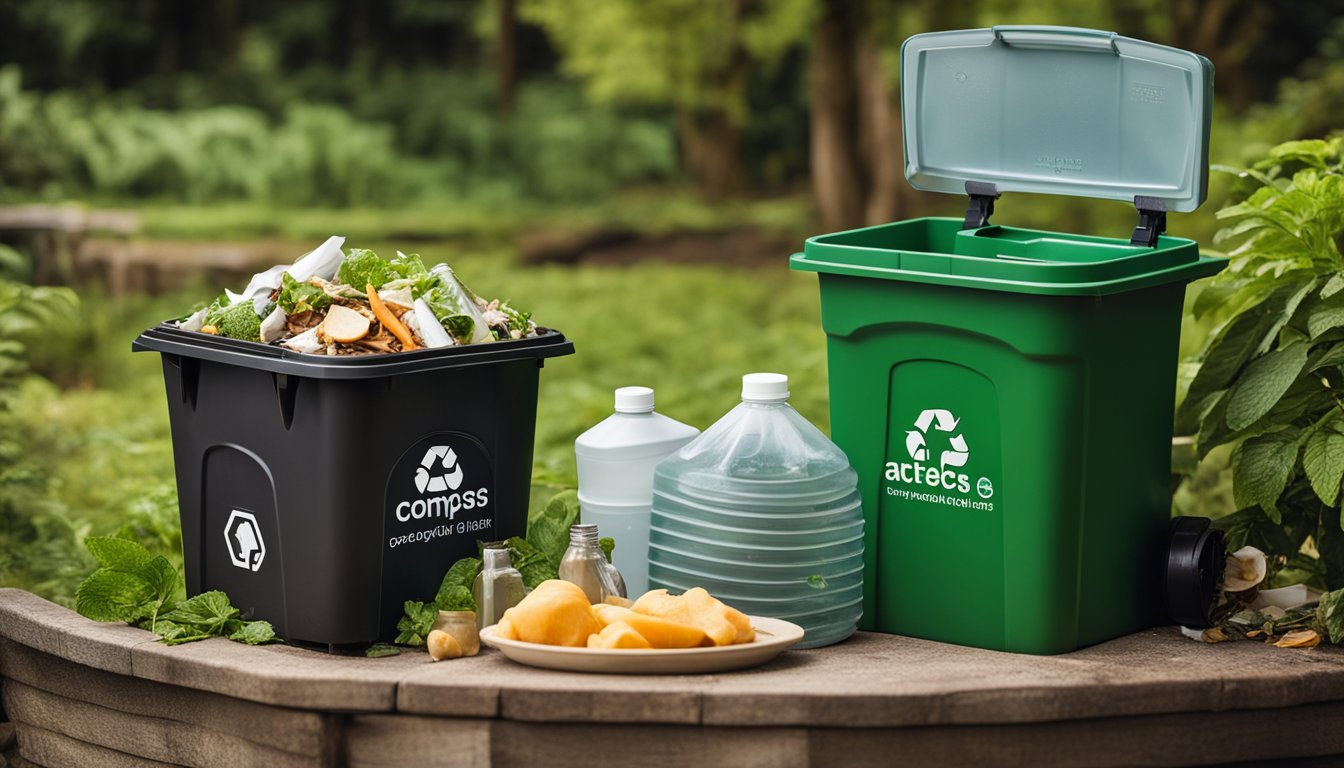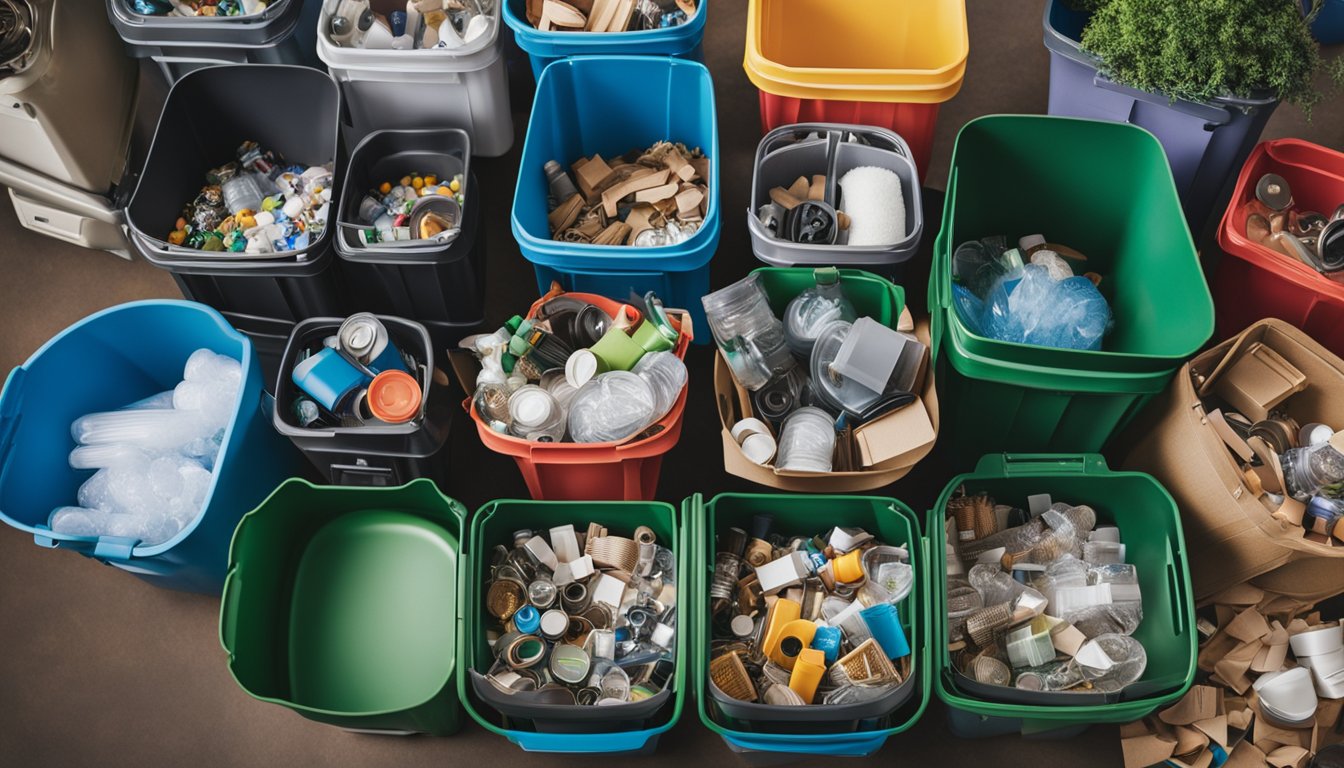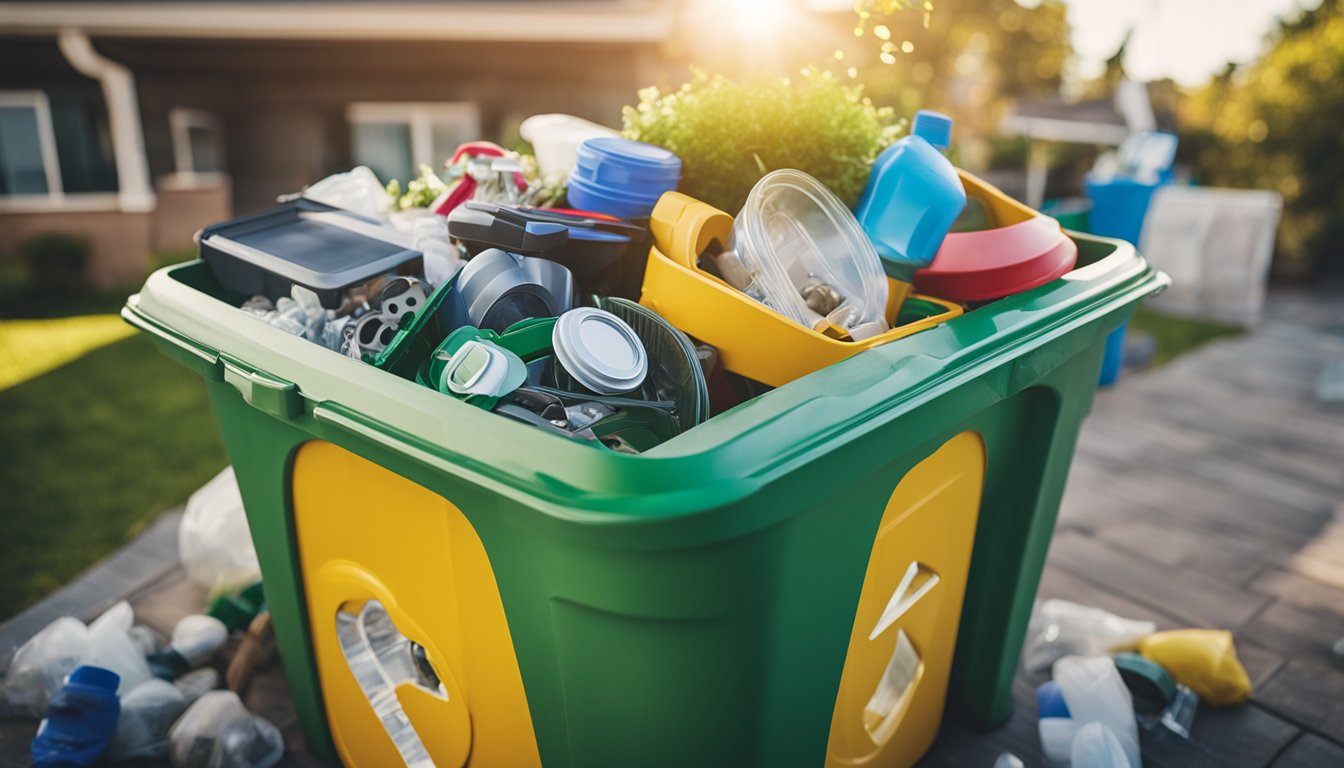Late updated: 25 Feb 2025 12:02
Written by: Sarah Hollister
Creative Ways To Reduce Home Waste: Innovative Strategies for Eco-Friendly Living
Reducing waste at home is an essential step towards a sustainable lifestyle. Our households have a significant impact on the environment, from the packaging we throw away to the resources we consume. By implementing creative and simple methods to minimise waste, we can contribute greatly to reducing our environmental impact. These methods not only help us waste less but also encourage a resourceful mindset.

Reusing and repurposing items is one of the simplest strategies we can adopt. From transforming glass jars into storage containers to turning old clothing into cleaning rags, giving items a new life can significantly cut down on what ends up in landfills. Engaging in innovative recycling projects can also be fulfilling and educational for the whole family.
Adopting a zero-waste lifestyle might seem challenging, yet small changes can lead to big results. Taking steps such as composting food scraps or using eco-friendly cleaning products not only lessen waste but also encourage healthier home environments. By embracing these creative solutions, we take essential strides towards mitigating the waste crisis and fostering a more sustainable future.
Key Takeaways
- Creative strategies at home reduce our environmental impact
- Repurposing everyday items cuts waste and is resourceful
- Small changes lead to a sustainable, zero-waste lifestyle
Strategies for Minimising Waste at Home
Reducing waste at home can be approached through various creative strategies. By making simple changes like adopting zero-waste kitchen practices, choosing eco-friendly cleaning methods, and engaging in conscious consumerism, we can significantly cut down on household waste.
Fostering a Zero-Waste Kitchen
In our kitchens, much waste reduction can be achieved by focusing on food waste and smart storage solutions. We should aim to minimise leftovers by planning meals carefully and using creative recipes to reinvent them.
Composting is another effective method to manage organic waste, turning kitchen scraps into valuable nutrient-rich fertiliser for gardening. Using reusable containers and snack bags allows us to avoid single-use plastics, while buying in bulk helps minimise packaging waste.
Eco-Friendly Cleaning Practices
Switching to eco-friendly cleaning solutions can drastically reduce waste from packaging and chemicals. Simple ingredients like vinegar, baking soda, and lemon juice can be used for most cleaning tasks, reducing reliance on chemical-laden products. Reusable cloths and mop heads replace disposable ones, cutting down on rubbish.
We should also opt for concentrated products that can be diluted at home. This strategy reduces packaging and transport emissions, contributing to our waste reduction goals.
Decluttering and Conscious Consumerism
Reducing clutter is crucial for maintaining a low-waste home. By focusing on quality over quantity, we can ensure that new purchases are necessary and durable. Embracing the concept of repurposing involves finding new uses for items we might otherwise discard.
Engaging in mindful shopping, such as bringing reusable cutlery and coffee cups when eating out, helps limit reliance on single-use options. By becoming conscious consumers, we can make informed decisions that align with our waste reduction efforts.
Reimagining Household Items
Upcycling offers immense potential to breathe new life into old objects. In our homes, we can transform everyday items into something useful or decorative. Jars can become storage for pantry goods, while old furniture can be renovated for modern use.
Through upcycling, we not only reduce waste but also foster creativity. Participating in community swaps is another way to exchange items with others, reducing the need to buy new. This approach encourages a circular economy mindset, helping us to minimise what ends up in landfill.
Innovative Waste Reduction and Recycling

In today's world focused on sustainability, innovative approaches in waste reduction and recycling are crucial. By adopting effective methods, we can make wiser choices and reduce our environmental impact. Our focus includes mastering recycling techniques, transforming waste into valuable resources, and adopting conservation practices in our daily lives.
Effective Recycling Techniques
To truly make an impact, recycling must be done correctly. Identifying recyclable materials like plastic bottles, glass, and paper is the first step. We should rinse and sort these items meticulously to prevent contamination. Recycling centres appreciate this effort. Moreover, using municipal recycling guidelines helps ensure compliance, reducing landfill contributions.
E-waste recycling is equally vital. Devices such as smartphones and laptops contain hazardous materials. Finding local e-waste disposal stations allows us to recycle these gadgets responsibly. Implementing these techniques not only aids in waste management but can help us save money over time by promoting a sustainable lifestyle.
Turning Waste to Resource
Transforming waste into resources is not only innovative but essential. We can turn what we consider trash into treasure by upcycling materials. Used plastic bottles can be repurposed into planters or bird feeders, while tin cans make charming indoor or outdoor lanterns.
In the realm of composting, kitchen scraps become nutrient-rich soil improvers. By adopting composting systems, we enhance garden yield while reducing waste output. Embracing such methods highlights our creative capabilities and underscores our commitment to sustainability.
Conservation and Reuse in Daily Life
To reduce waste, integrating conservation and reuse strategies in our routine is key. Reusable bags and containers eliminate single-use plastics, while menstrual cups offer a sustainable alternative to disposable hygiene products. These simple choices substantially cut down on waste.
Incorporating a water filter at home prevents the purchase of bottled water, saving both resources and money. As we adopt these practices, we contribute to a wider movement advocating for resource conservation. Staying conscious of our consumption patterns reinforces our role in maintaining a sustainable lifestyle.
Frequently Asked Questions

Reducing home waste involves practical strategies, such as adopting zero-waste methods, managing waste disposal, and using the 5 R's principle effectively. Sustainable waste practices can further support these efforts.
What strategies exist for minimising household waste?
We can start by focusing on reducing single-use items, repurposing materials, and supporting recycling initiatives. This may involve using durable and reusable products, composting organic waste, and being mindful about purchase decisions to avoid excess.
Can you suggest ways to implement a zero-waste household?
To achieve a zero-waste household, we need to prioritise buying in bulk, using refillable containers, and choosing products with minimal packaging. Additionally, creating a compost system for biodegradable waste and regularly auditing waste production can help us stay on track.
What are the practical applications of the 5 R's in domestic waste reduction?
The 5 R's—Refuse, Reduce, Reuse, Recycle, and Rot—offer a structured approach. By refusing unnecessary items, reducing what we use, reusing when possible, recycling effectively, and composting organic waste, we can substantially decrease our waste output.
How can one effectively manage waste disposal within the home environment?
Effective waste management involves setting up a sorting system for recyclables, compostables, and landfill waste. Regularly cleaning and maintaining bins encourages proper disposal habits. Additionally, understanding local recycling guidelines ensures materials are correctly sorted and processed.
What methods can be adopted to cut down everyday waste generation?
To cut down on everyday waste, we can focus on meal planning to avoid food spoilage, opting for digital documents instead of paper, and selecting quality items that last longer. Small changes, like these, can significantly impact waste reduction in the long run.
In what ways can we foster sustainable waste management practices at home?
Sustainable waste management at home can be fostered by educating family members on eco-friendly practices and encouraging participation in sustainability challenges. Building a community network to exchange reusable goods and knowledge can further enhance our efforts to maintain a waste-conscious lifestyle.
